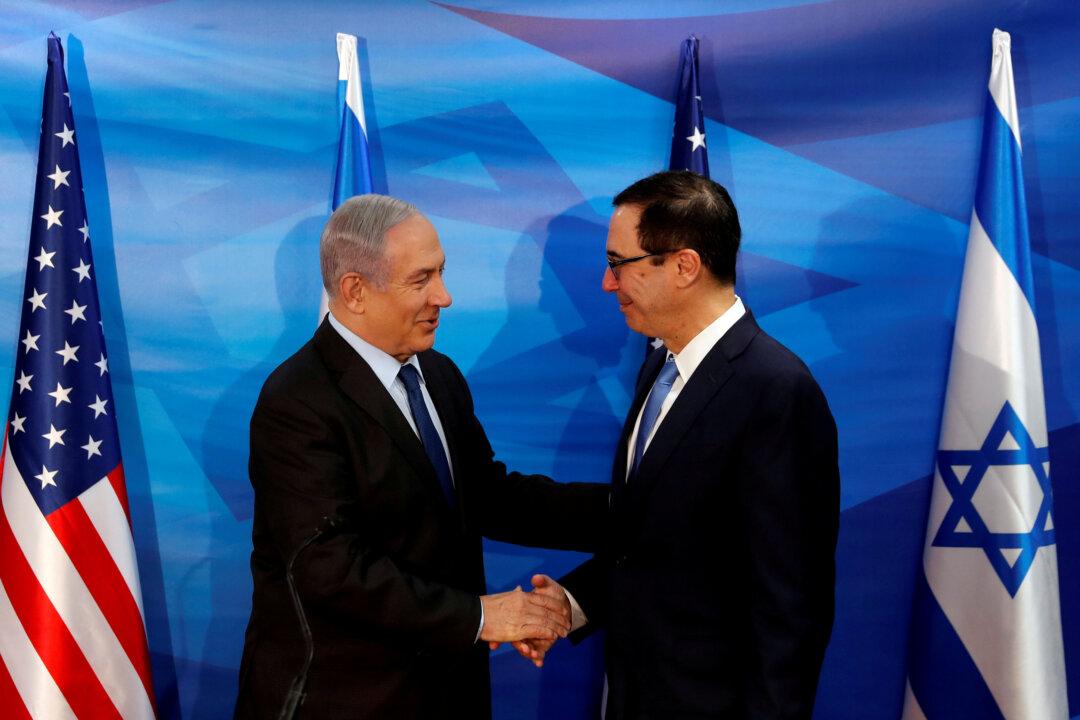JERUSALEM—Israel decided on Oct. 30 to form an advisory committee to weigh national security aspects of prospective foreign investments in Israeli companies after coming under U.S. pressure over business deals with China.
The Israeli security cabinet’s move to set up the panel followed a visit to Israel this week by U.S. Treasury Secretary Steven Mnuchin, although discussions on the issue have been going on for the past three years.





